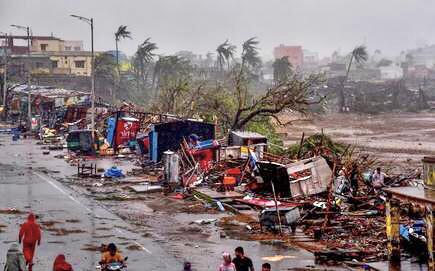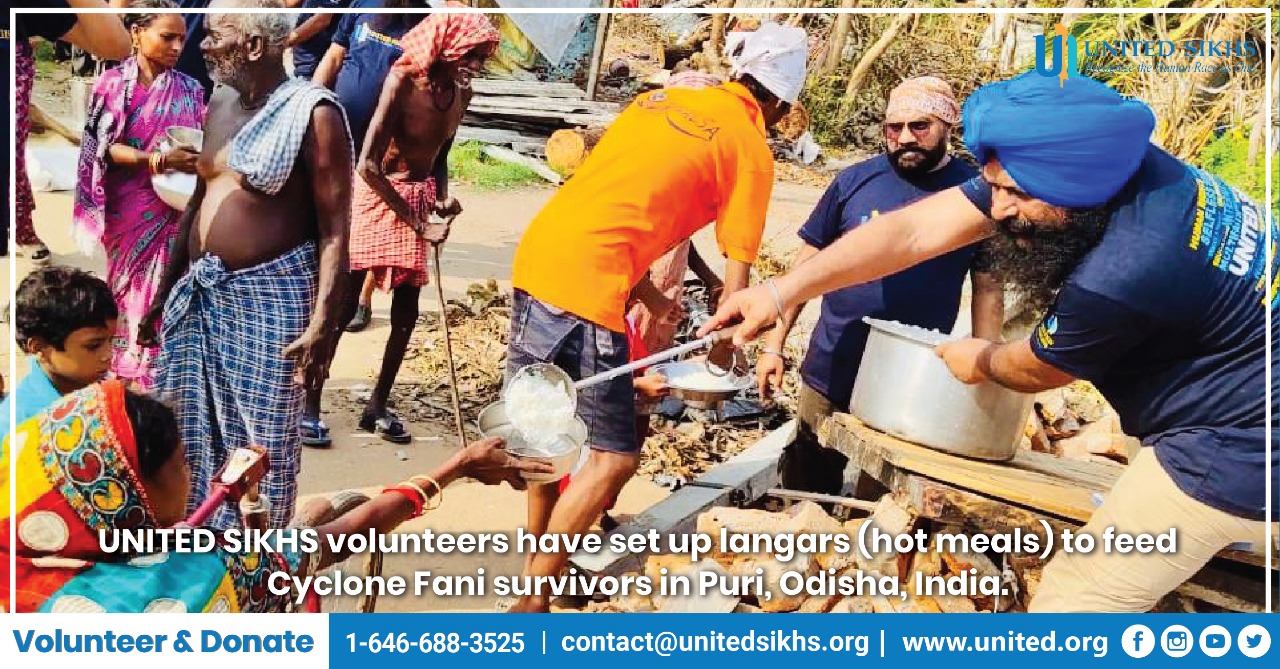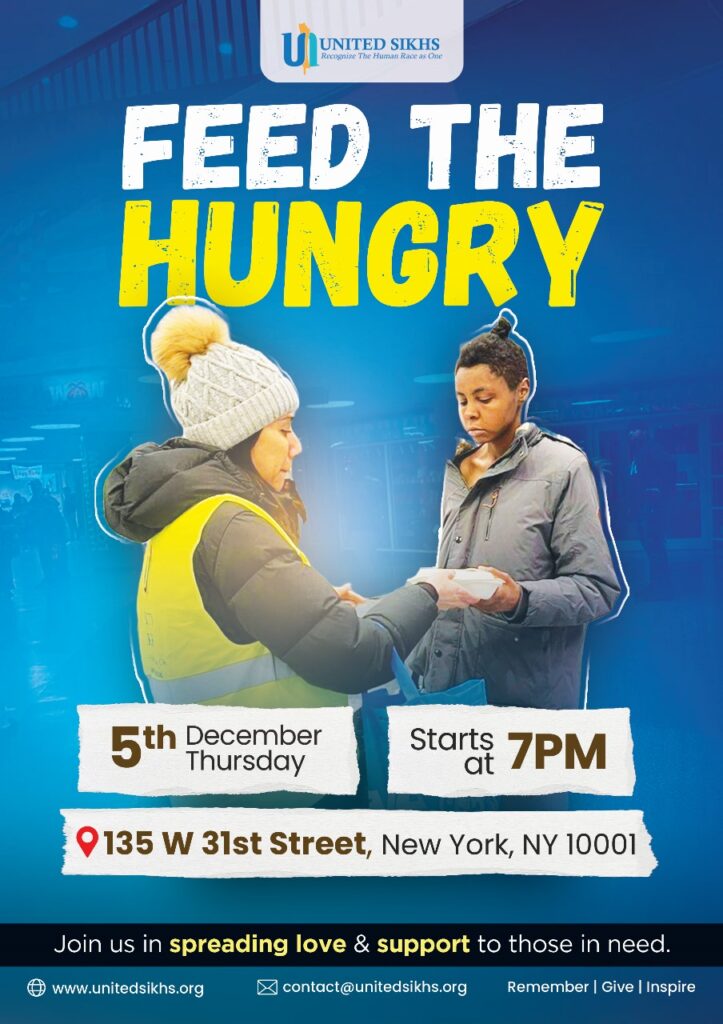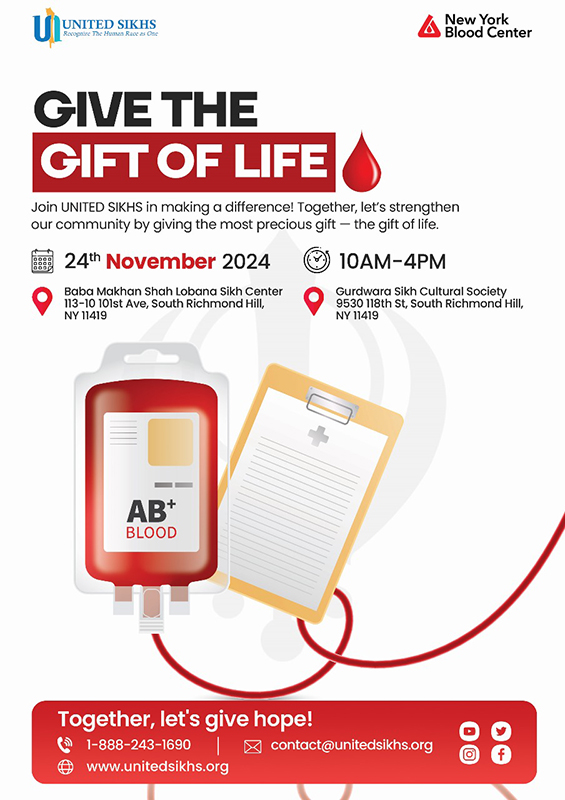Providing Aid to Tropical Cyclone Fani Victims


UNITED SIKHS mobilized over a dozen volunteers to respond swiftly. The team established a base at a local gurdwara in Puri, providing free meals (langar) and offering shelter to those in need. The organization distributed essential supplies to the displaced population, particularly focusing on the elderly and children. UNITED SIKHS also prepared to set up medical camps, further extending their aid by addressing the healthcare needs of the cyclone survivors.
Through their efforts, UNITED SIKHS was able to provide immediate relief to thousands of affected individuals. The langar served not only nourished those in shelters but also offered a sense of community and support during a time of despair. The evacuation efforts, combined with the organization’s relief response, saved countless lives, while their ongoing presence helped stabilize the situation for the victims of Cyclone Fani. This was yet another demonstration of UNITED SIKHS’ commitment to aiding disaster-stricken communities, continuing their work from more than 30 global disaster responses since 1999.



